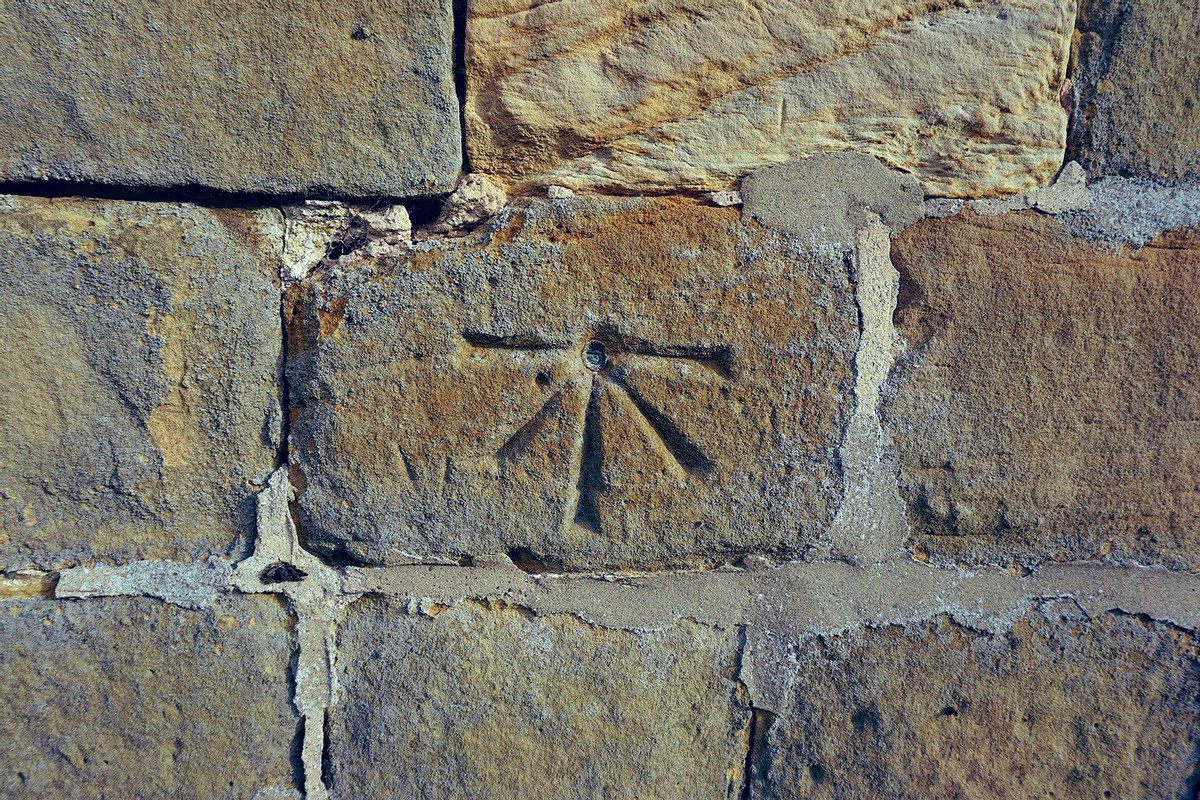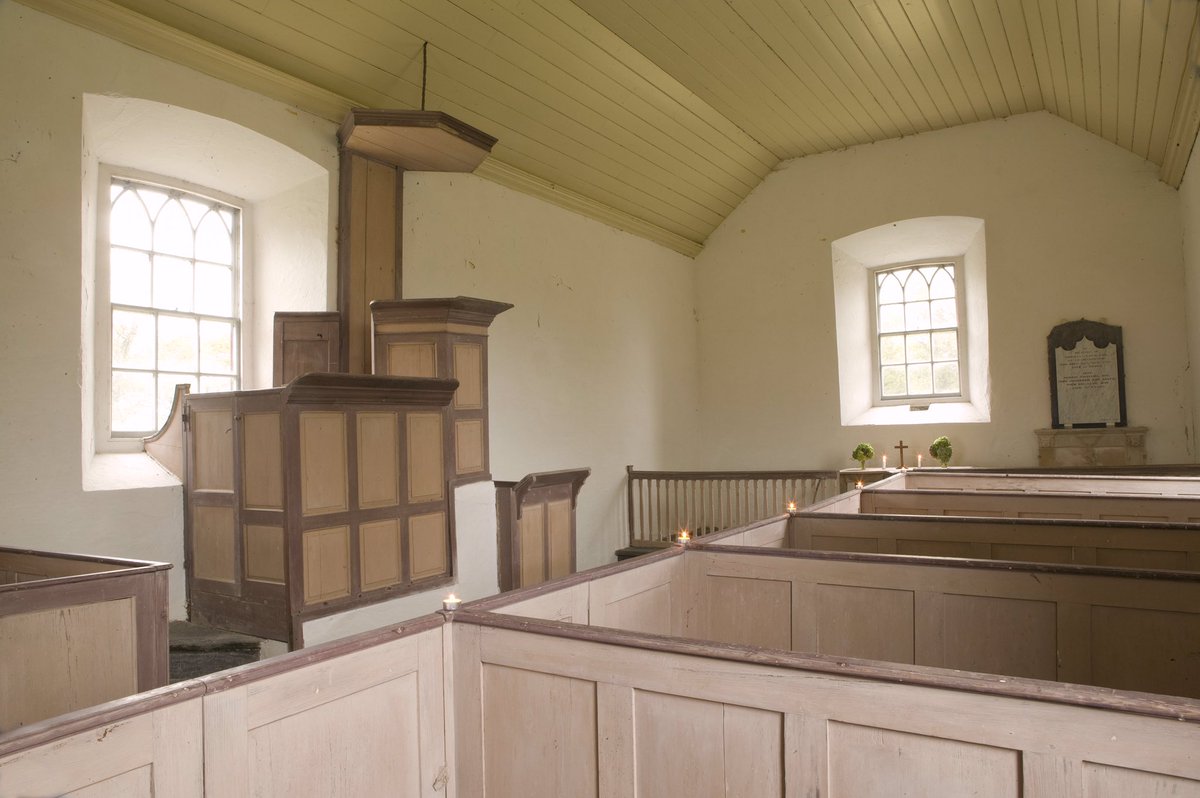
On an external wall of St Lawrence's, Hutton Bonville, North Yorkshire, you can spot an ordnance survey benchmark.
#thread
#thread

From the 1830s to the 1990s surveyors made these benchmarks to record height above Ordnance Datum Newlyn (ODN – mean sea level determined at Newlyn in Cornwall). From this reference, the elevation of another benchmark could be calculated by measuring the difference in heights.
The horizontal marks supported a stable ‘bench’ that a levelling stave could rest on. This design ensured that a stave could be accurately repositioned in the future and that all marks were uniform. 

500,000 of these marks were chiselled into buildings and walls, many of them on churches. Once invaluable, they have now been replaced by GNSS technology. As structures are demolished or eroded, marks are disappearing from the record.
@OrdnanceSurvey maintains a database of all benchmarks across Britain which tells us that the cut benchmark at Hutton Bonville church is 0.4m above the ground and 44.03m above ODN, and was last verified in 1959. 

• • •
Missing some Tweet in this thread? You can try to
force a refresh


























